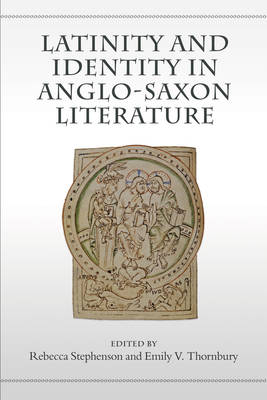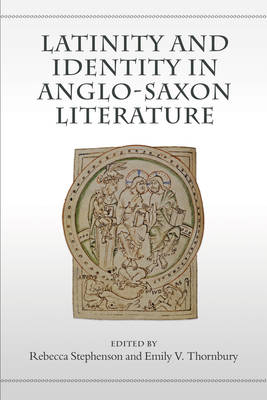
- Retrait gratuit dans votre magasin Club
- 7.000.000 titres dans notre catalogue
- Payer en toute sécurité
- Toujours un magasin près de chez vous
- Retrait gratuit dans votre magasin Club
- 7.000.0000 titres dans notre catalogue
- Payer en toute sécurité
- Toujours un magasin près de chez vous
Latinity and Identity in Anglo-Saxon Literature
Description
For the Anglo-Saxons, Latin was a language of choice that revealed a multitude of beliefs and desires about themselves as subjects, believers, scholars, and artists. In this groundbreaking collection, ten leading scholars explore the intersections between identity and Latin language and literature in Anglo-Saxon England. Ranging from the works of the Venerable Bede and St Boniface in the eighth century to Osbern's account of eleventh-century Canterbury, Latinity and Identity in Anglo-Saxon Literature offers new insights into the Anglo-Saxons' ideas about literary form, monasticism, language, and national identity.
Latin prose, poetry, and musical styles are reconsidered, as is the relationship between Latin and Old English. Monastic identity, intertwined as it was with the learning of Latin and reformation of the self, is also an important theme. By offering fresh perspectives on texts both famous and neglected, Latinity and Identity will transform readers' views of Anglo-Latin literature.
Spécifications
Parties prenantes
- Editeur:
Contenu
- Nombre de pages :
- 264
- Langue:
- Anglais
- Collection :
Caractéristiques
- EAN:
- 9781442637580
- Date de parution :
- 04-08-16
- Format:
- Livre relié
- Format numérique:
- Genaaid
- Dimensions :
- 157 mm x 231 mm
- Poids :
- 544 g

Les avis
Nous publions uniquement les avis qui respectent les conditions requises. Consultez nos conditions pour les avis.





